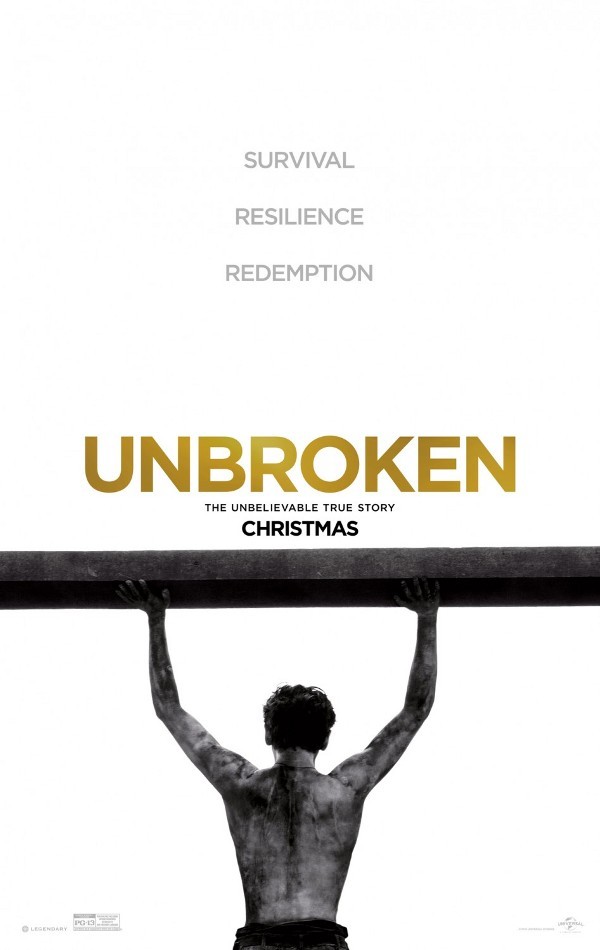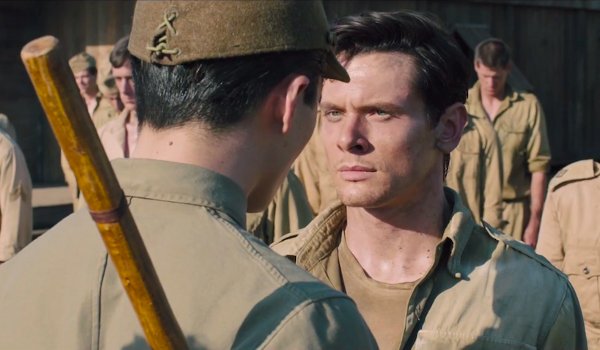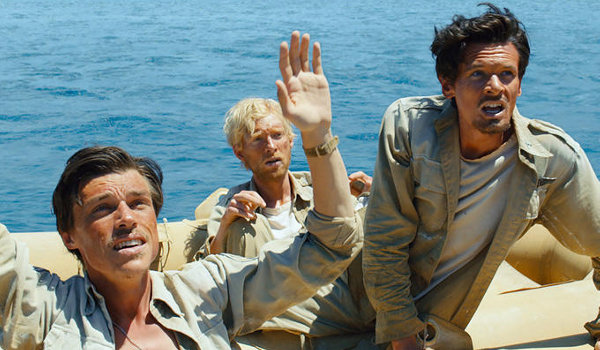- Title: Unbroken
- IMDb: link

 Mash-up The Bridge on the River Kwai and Rescue Dawn, while oversimplifying it for mainstream audiences, and you’ve got something that looks quite a bit like Angelina Jolie‘s directorial debut. Unbroken isn’t a bad film, but unwilling to color outside the lines Jolie takes a remarkable story and offers us a paint-by-number hero tale that only marginally entertains while struggling to celebrate a man’s inspirational journey as a prisoner of war during World War II.
Mash-up The Bridge on the River Kwai and Rescue Dawn, while oversimplifying it for mainstream audiences, and you’ve got something that looks quite a bit like Angelina Jolie‘s directorial debut. Unbroken isn’t a bad film, but unwilling to color outside the lines Jolie takes a remarkable story and offers us a paint-by-number hero tale that only marginally entertains while struggling to celebrate a man’s inspirational journey as a prisoner of war during World War II.
After clips showing us what a punk kid he was before falling in love with track and field, the film centers around the war experience of former Olympian Louis Zamperini (Jack O’Connell) whose Olympic moments and life following WWII are glossed over and ignored. Instead the screenplay by the Coen Brothers (in the most un-Coen Bros. script you’ve ever seen), Richard LaGravenese, and William Nicholson is a somewhat unfocused look at Louis’ life in war spending an inordinate amount of time focused on the weeks he was lost at sea before skipping ahead to offer highlights of his P.O.W. experience which by on-screen time you may mistakenly feel were of near equal length (rather than weeks on the raft versus the years spent in the camps).
O’Connell is likable enough as the film’s old-fashioned hero and Takamasa Ishihara certainly plays the brutal Japanese military officer in charge of breaking his prisoners to the hilt. However, because so much of the film is spent before Louie ever makes it to the camp, the rest of the film feels rushed attempting to give us the highlights of his time, jumping around a bit too much without spending the necessary screentime to show the daily grind of such an experience that was likely far more brutal than what we’re shown. Compared to something like Rescue Dawn it almost looks like a Disney film.
Aside from taking the various talents of everyone involved and creating the safest motion picture possible, Jolie does deserve some credit as a director. She gets the most out of her cast from her leading man to several of the number of other prisoners who earn far less screentime. And her choices in cinematography, look, and style play out well over the film’s 137-minute run. Given the amount of story the rest of the film has to cover the life-raft sequences take up too much time but they are also some of the very best the film has to offer and an entire movie about just that journey may have been far more interesting to watch.
With the number of screenwriters involved I can’t say I’m surprised that the film struggles with deciding how much of Louie’s life to focus on. Given the gaps that take place in the version opening in theaters I would be curious to see how much footage was left on the cutting room floor and whether a longer edit may play far better and offer a more effective examination of a man who is boiled down into a catchy slogan for far too much of the film.


